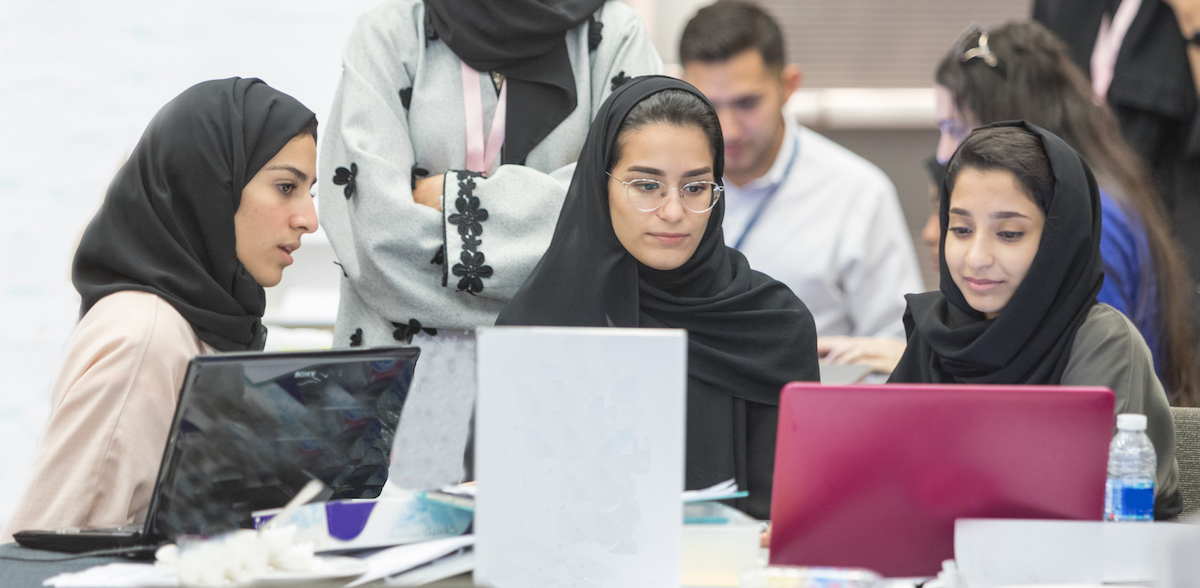KAUST hosts hackathon to create mobile apps for future smart cities

The University hosted developers and designers at the first SAP Mobile Hackathon held on campus from February 7 to 9. File photo.
KAUST hosted developers and designers from around the Kingdom at the first SAP Mobile Hackathon to create mobile apps for the future of smart cities. The event, which took place on campus from February 7 to 9, was an outcome of a partnership between SAP, a global leader in software and technology solutions, KAUST Innovation and Economic Development, KAUST IT and the KAUST Computer, Electrical and Mathematical Science and Engineering division.
"KAUST is committed to being a hub for innovation in the Kingdom, attracting talent locally and internationally to find solutions to shared global challenges," said Dr. Kevin Cullen, vice president of KAUST Innovation and Economic Development. "The SAP Mobile Hackathon [was] a great way to support our innovators and creators to collaborate and develop the infrastructure of the smart cities of the future."
The hackathon brought together 38 designers and developers to create new and inspiring mobile applications for prosperity in future smart cities. A jury consisting of experts in the field selected the best performing team and evaluated the unique solutions the developed mobile app brought to future smart cities.
Participants discuss their ideas during the first SAP Mobile Hackathon held on campus from February 7 to 9. File photo.
Approximately 55 percent of the participants were women, providing the opportunity to encourage and demonstrate the impact of diversity and the inclusion of women in business performance.
Jason Roos, KAUST chief information officer, noted that 'KAUST IT [was] proud to be a part of the...SAP Hackathon.' File photo.
"Science and technology are the core elements of what KAUST is all about and we know that these areas will determine the jobs of the future," he continued "So, encouraging more women to get involved in areas such as software development, data science, artificial intelligence and many other emerging technologies will not only serve to benefit Saudi Arabia and its future growth but also the entire world."
Experts from SAP guide hackathon participants on their project implementation during the first SAP Mobile Hackathon on campus. File photo.
Not only did the participating developers utilize their skills in creating mobile applications, but they also attended lectures and workshops that sharpened their skills in developing and programming.
"The SAP Hackathon [was] a great opportunity for the participants, as it [brought] state-of-the-art technology in the context of fast-paced problem solving," noted Mootaz ElNozahy, dean of the KAUST Computer, Electrical and Mathematical Science and Engineering division. "The event show[ed] KAUST's commitment to the education and development of talent for the Kingdom and the world."
A participant receives guidance on his project from a SAP expert during the first SAP Mobile Hackathon on campus. File photo.
Related stories:
- KAUST students participate in Europe's leading hackathon event
- KAUST participates in MIT Hacking Medicine event
-
At the forefront of programming models

